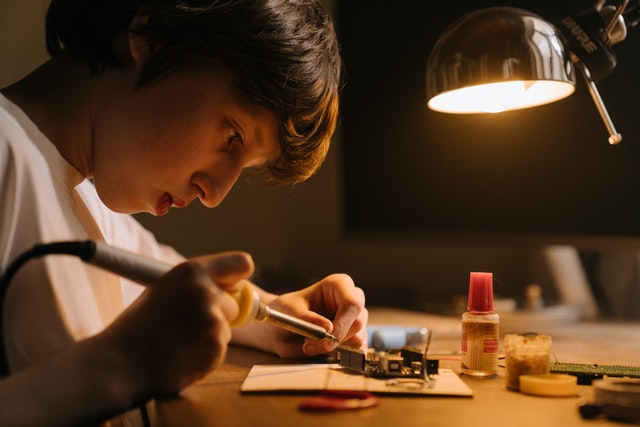
Neurodivergent is a buzz word that’s taken off in the past decade. The term applies to a broad spectrum of people who are, for whatever reason, not normal. Those who ‘suffer’ from ADD, ADHD, OCD, dyslexia, dyscalculia, etc. are all on the list.
For those who don’t know or haven’t guessed, I’m on the autistic spectrum and also have mild dyslexia, dyscalculia, and severe ADHD. Most of my life, I knew I was different, but wasn’t exactly sure why. I was always an outsider and struggled to pick up social cues.
***Most of my grade school teachers are still the fodder of nightmares.
I don’t recall my third grade classroom, only what the hall looked like.
Teachers punished me because I did things differently than the other students. I was a whiz at math, could solve highly complex problems in my head, only to fail the test because I transpose numbers. Or, I showed my work, but solved the problem differently than the way the teacher wanted.

It seemed no matter what I did, it was wrong. I talked too much, moved too much, worked too quickly, asked too many questions, and my obsessive need for order caused more than its fair share of problems.
In Kindergarten, my teacher broke all my Crayons in half and tossed them all together in a bucket.
I have still not gotten over the hurt.
Neurodivergent vs. Neurtotypical
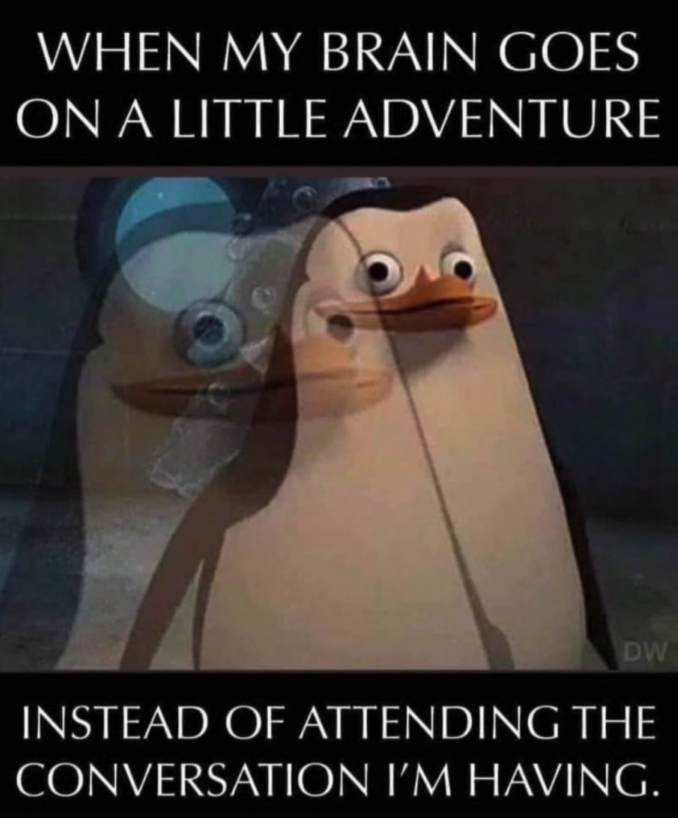
Obviously, to be considered neurodivergent there has to be a counterpart, which includes those considered neurotypical.
Neurotypical describes individuals who display typical intellectual and cognitive development. Since human beings are social animals who band together for survival, a neurotypical is generally adept at navigating complex social situations, picking up on subtle social cues, creating friendships and forming lasting bonds.
They are more aware of what could be socially off-putting. Apparently, talking about serial killers or the Black Death for an hour straight at a cocktail party is not normal.
Who knew?
Unlike neurodivergents, neurotypicals aquire verbal, language, social, and problem solving skills along a fairly standard timeline and meet generalized milestones for development. They can also function well in a regulated environment without becoming distracted or overloaded by stimuli.
And, for the record, there is overlap. Some people can be mixture of both.
Neurodivergents & the Social Disconnect
GREAT at seeing patterns…in everything but a conversation *face palm*
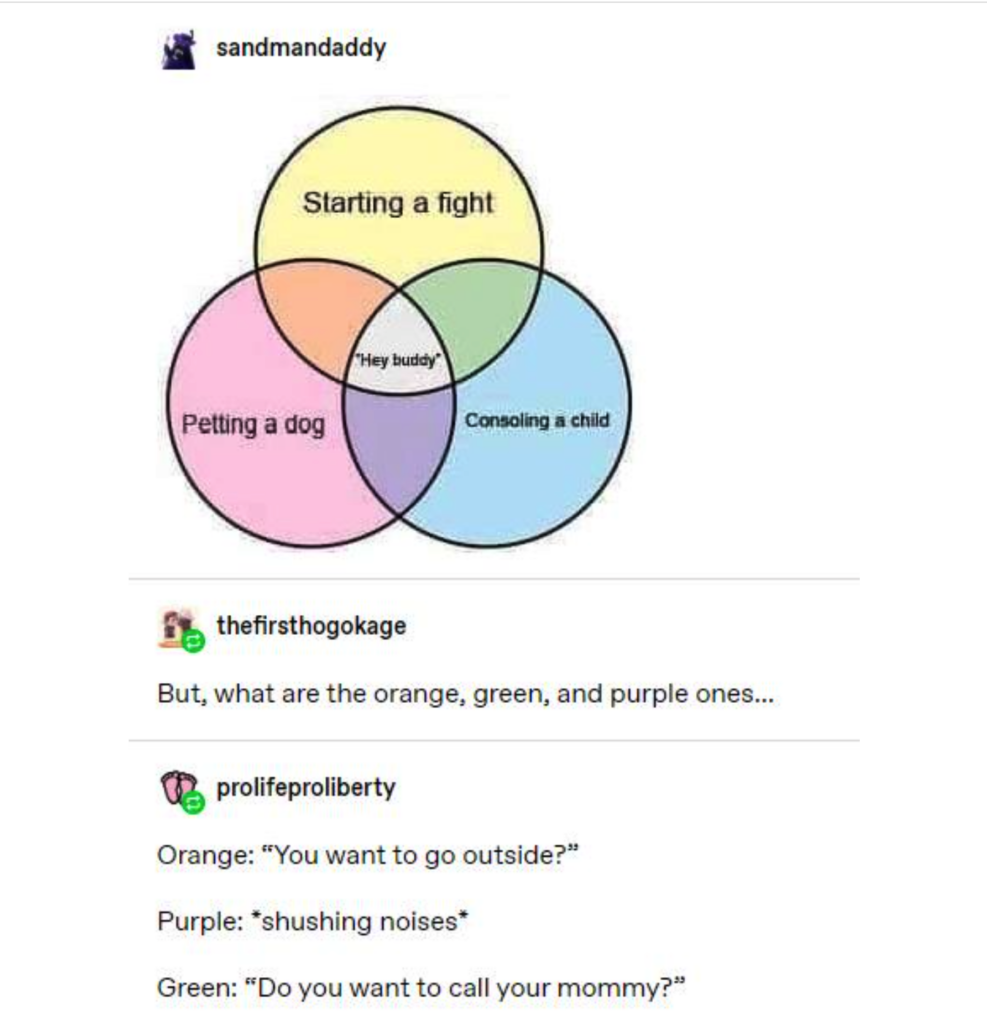
As I’ve mentioned before, I am not a clinical psychologist, I only play one on the internet. Early life, for me, was challenging at best, but often pretty miserable. Not to tell a sob story but I didn’t like playing with other kids when I could be copying the encyclopedia or playing with my chemistry set.
Sorry about the chlorine gas.
In all honesty, I didn’t UNDERSTAND other kids. I had no concept WHY they wouldn’t be interested in organic chemistry or political science.
At first, I retreated totally inwards, reading, drawing, learning clarinet. Eventually, after binging enough standup comedy, I ‘learned’ how to be funny. I could ‘mimic’ being sociable, and to an extent I still do.
Back when I was growing up, I wasn’t neurodivergent, I was weird, a freak, a nerd, or (to most adults) a problem child. The handful of teachers who ‘got me’? OMG what a blessing!

I didn’t understand that one wasn’t supposed to be honest all the time. So one time, in 6th grade, when the same four boys disrupted the social studies class every single day for almost a month. And every single day the teacher made everyone put their heads on their desks even though we’d done nothing wrong.
I became more than a little annoyed.
Eventually, I asked the teacher why she couldn’t just send the four boys out of the room. Her job was to teach us about the Roman Empire, not read romance novels.
Yep, Mom got called to school over that one.
Overstimulation
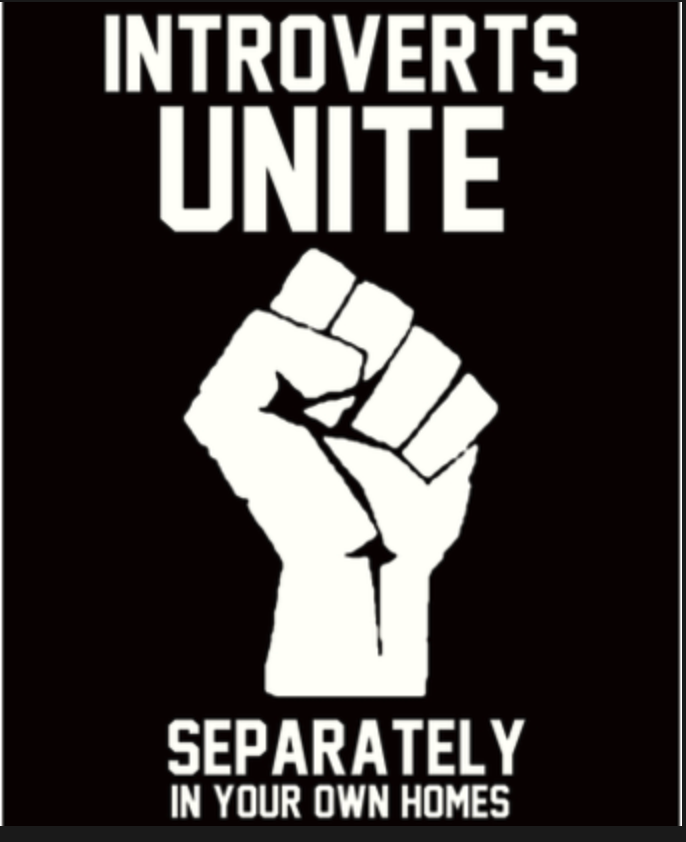
Those of us who are neurodivergent are frequently viewed as ‘problematic.’ For instance, being on the autistic spectrum, I cannot tolerate certain textures in food or fabric. I am VERY picky about the clothes and jewelry I wear. Turtlenecks and chunky jewelry either give me anxiety or a headache.
I’ve recently struggled with finding a church to attend. No shade on the new style of churches. I know many people love the praise music and the show. But for me?
Dark rooms packed with people combined with booming music and flashing lights is a nightmare. Yet, when I say something about the loud noise and bright lights it falls on deaf ears because everyone else enjoys it.
This is why I struggled in school. The ‘noise’ of everything was simply too much, which was why I’d tap my foot or pen or move around…and eventually be planted in the hall.
Even now, as I am writing this, I’m wearing noise-canceling headphones.
When I worked in Corporate America, my admin and I nearly came to blows over the lights in MY office. I worked on a laptop and the natural light was fine. Florescent lights are too bright and flutter and give me headaches.
Invariably, the admin would lean in my office while I was working and turn on my overhead lights.
ACK!
Stimming & Neurodivergent
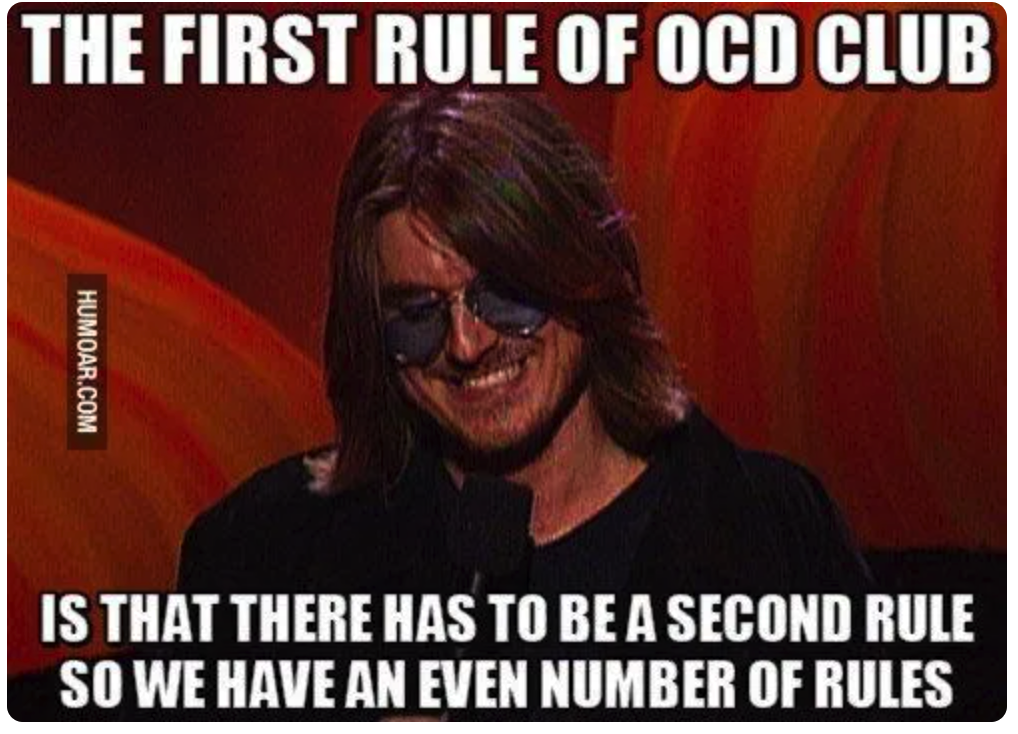
Stimming is common for everyone, but might be more pronounced with those who are neurodivergent. Biting nails, twirling hair, tapping a pencil, etc. are all forms of stimming.
Stimming is a way of dispersing extra energy that builds up as anxiety (obviously that anxiety will be more acute in the neurodivergent). One of the reasons experts believe that autism went underdiagnosed in females is that our stimming behaviors and coping mechanisms are far more socially acceptable thus go unnoticed.
Coloring for hours, rearranging dolls all day, collecting thousands of stickers or unicorns, writing stories, practicing a dance move over and over are simply ‘girl behaviors,’ thus fly under the radar.
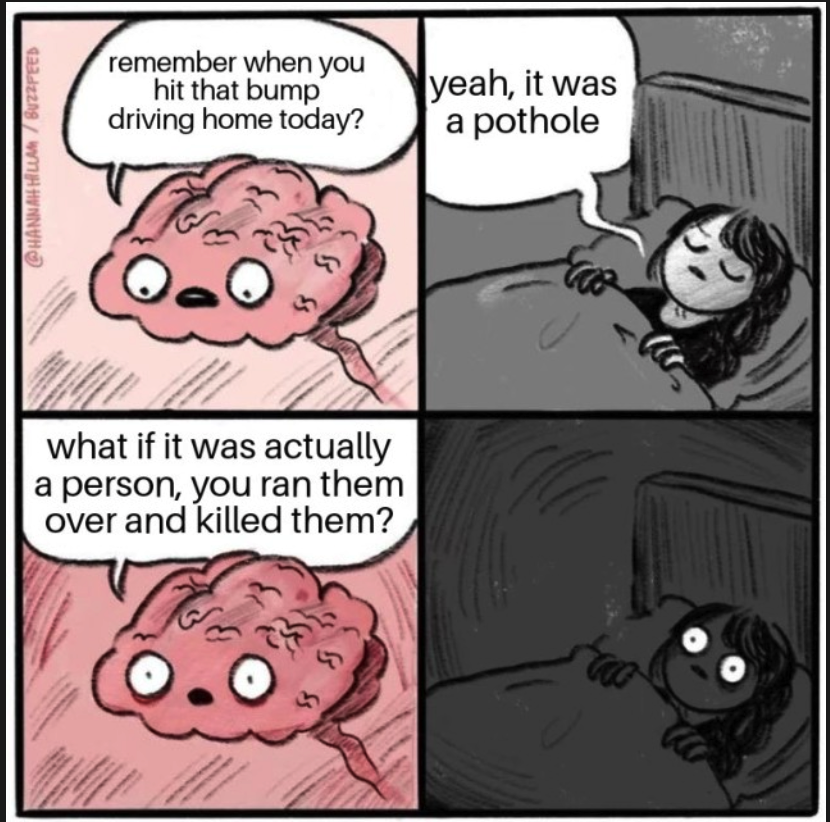
I was in ballet for almost ten years. My mom deserves an award for letting me dance through the house all day every day for HOURS. To this day the only reason I think she doesn’t hate me for playing Tchaikvosky 600,000 times was because she’s also neurodivergent.
As an adult, I clean and listen to books and podcasts. I find it very difficult to sit and just read. When I used to attend church, I worked church security because I could walk around and look for any potential problems while also listening to the sermon.
With ADHD, I have to be doing multiple activities to pay attention. One that is a ‘no-brainer’ (cleaning, crochet, gardening) and the other that requires focus (listening to a lecture, a sermon, a book, talking on the phone).
I also live my life by lists, times and routines. Interfere with any of these and you’ll have me climbing a wall. Yes, I can be flexible…if I can plan it ahead of time.
Neurodivergent: Disabled or Differently Abled?
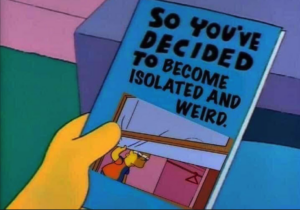
***Note: I KNOW and very much appreciate there are severe and even debilitating forms of autism, OCD, etc. but that isn’t what I am talking about today.
Thus, for the record, I am speaking for me as a neurodivergent person in a normie world. I get REALLY irritated when some suggest I have a disability. I believe I simply have a different operating system. Sort of like being a Mac when 93% of the world is Windows.
If being neurodivergent is a disability, then being left-handed should be as well, since all lefties know what it is like trying to function in a world where everything from notebooks and desks to cars and combines are designed for right-handed people. Lefties even have higher rates of accidents and, consequently, lower life-expectancies.
Did y’all know that 25% of CEOs and as much as 35% of entrepreneurs are actually dyslexic? Because they struggle with reading, they are more apt to commit information to memory, are better at delegating, and are excellent at persevering.
My son (A.K.A. Spawn) is neurodivergent and, at age 12, he studies three languages (German, Spanish, Russian) every day ‘for fun.’ He knows so much about every war from ancient Greece to Desert Storm, he’s like a walking Wikipedia.
When other kids his age are watching cartoons, he’s studying forensic accounting to understand how organized crime launders/hides money.
His favorite topic of ALL…*hangs head* vexillology. My son IS Sheldon.
Neurodivergent in Fiction
Whether we realize it or not, neurodivergent people are REALLY common in fiction, as noted above. Virtually every character on the wildly successful series The Big Bang Theory is neurodivergent, albeit in different ways and to different degrees.
Obviously neurodivergent characters will pop up more commonly in some genres than others, but characters who see and process the world differently are valuable in life AND in story.
Some favorite examples.
Thriller: The Accountant is about a severely autistic man who’s channeled his unique skillsets to become the ‘money guy’ for organized crime around the globe.
Science Fiction: Stranger Things is packed full of characters who are the nerds, freaks and rejects…who are just the type of people necessary to save the world.
Drama: As Good as It Gets Melvin Udall is a famous novelist who is a raging homophobe, misogynist, and misanthrope who suffers from crippling OCD. He ends up the very unlikely hero when his homosexual neighbor is the victim of a hate crime.
Crime Procedural: With Monk, one police department’s debilitating disorder is private detective’s superpower. Abby, genius forensic scientist and pathologist on NCIS, is at the minimum VERY ADHD. Dr. Laura Isles in Rizolli & Isles, is likely on the autistic spectrum though not to the degree as forensic anthropologist Dr. Temperence Brennan in Bones.
Nerds, Freaks, March to Their Own Kazoo

Our culture has used neurodivergent characters as tropes since before anyone knew what it was. We are those who are different, outsiders, freaks. Most of my growing up years were tough because being a nerd was a fate worse than death according to pop culture.
In a way, The Big Bang Theory was a mixed blessing for me. I read Dune, LOTR, played Dungeons & Dragons, was in debate, the chess club, a mathlete and collected all things Star Trek back when I got beat up for loving stuff…
…that’s now cool *rolling eyes*
No one wanted to talk to me unless they needed to copy my homework or wanted help on a paper. I remember longing to be normal, to fit in, to be like everyone else. Now? I fly my freak flag high. When it comes to my son, I tell him…
Honey, ‘normal’ is a setting on the dryer.
MOMISM
And, when we look to all the best movies, who are the heroes we love? Goonies, Ghostbusters, Back to the Future, Weird Science, and like every super hero movie EVER?
Neurodivergent People Have Problems
Just by the nature of our brains and sensory systems working differently, we DO have problems. Personally, I can’t be in (as in part of) really large crowds, around loud noises and I need time to be quiet. I miss social cues, can hijack conversations, talk too loudly and take things WAY too literally.
When I was a kid, there was an antacid commercial that practically gave me apoplexy.
Ad: How do you spell relief? R-O-L-A-I-D-S
4-Year-Old Me: *screaming at television* No, you dummies! It’s R-E-L-I-E-F!
Yeah, still working on nuance.
Sometimes the problems simply stem from, as I mentioned earlier, having a Mac OS in a Windows OS world. But, other neurodivergent people have struggles all along the spectrum of severity. Some of us do a fairly decent job of ‘fitting in’ whereas others probably never will, and that is okay too.
While fitting in can be overrated, I do admit there are times I wish I were normal… even though I have ZERO idea what that even would feel like.
Neurodivergent and Conflict

The beating heart of all fiction is conflict. Without conflict, we are left with ‘stuff happening.’ Since every scene requires conflict, more often than not, conflict will come from allies.
Think about Rizzoli and Isles. They’ll have a scene where clearly the victim has been shot but when Detective Rizzoli says the victim died by gunshot, Dr. Laura Isles chastises her. They know nothing until the body is on the table. She refuses to even say there is blood, only a ‘reddish substance.’ This is maddening for Rizzoli.
Abby from NCIS is like trying to get a fruit bat hopped up on cocaine and Pixi Stix to focus on one topic.
Dr. Sheldon Cooper has zero social skills and no sense that anyone has needs other than him. His girlfriend is Dr. Amy Farrah Fowler, a Harvard graduate and a neurobiologist.
She is also, obviously neurodivergent not only because of her field and interests, but it would take a neurodivergent person to be attracted to someone like Sheldon and have the patience and the grace to try to have a romantic relationship.
My favorite? When Amy builds a Tardis around the door to lure Sheldon into the bedroom (for intimacy) but he just keeps running in and out of the bedroom trying to escape Daleks and searching for his sonic screwdriver.
Normal isn’t Always What is Needed
Neurodivergent characters can obviously be stars of the story, but they can also make fabulous allies. In Buffy the Vampire Slayer, Buffy is only different because she’s chosen and has powers to hunt and kill creatures the Hellmouth is spawning underneath Sunnydale.
While Buffy is a neurotypical who excels in the social realm (cheerleader) and is popular, she can’t fight evil without her less ‘normal’ allies like Giles, Xander and Willow.
This week I’m teaching a class on how to build characters that are strong enough to endure a series (Use New15 for $15 off). Neurodivergent characters are a great addition. We’ve always seen them, just maybe thought of them as the nerd, the brain, the geek, the computer whiz, the conspiracy theorist, the outcast, etc.
Neurodivergent characters might notice patterns the ‘normal world’ misses. They solve problems in unique ways or have skillsets that ‘popular’ kids wouldn’t have. Think of Dustin in Stranger Things who somehow always has a screwdriver, flashlights, batteries, and compasses. Dustin is the brains and Steve is the brawn.
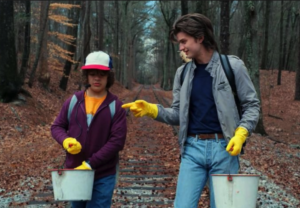
Also think how much FUN it is to see a neurotypical and a neurodivergent team up. One of my favorite character threads in Stranger Things is how super popular jock Steve Harrington becomes best friends with shameless mega-nerd Dustin Henderson.
Put these two together and yes, there is conflict. But since each has skills the other doesn’t possess but needs they make a great team and, eventually learn from each other and grow as people.
***For me, Eleven—while interesting and necessary—comparably isn’t nearly as interesting as other characters in the series.
In the end…
As neuroscience is understanding more and more about how the human brain works, we are realizing that people who were once labeled as freaks, weirdos, nerds, lazy, difficult, etc. just are different. And there are a LOT of us. More by the day since the digital revolution is really a boon for us weirdos.
We’ll talk more about different types of characters in the future, but today hopefully shines a light on a character that you probably see every day (many of you in the mirror) and how they can really make wonderful additions to your fiction.
What Are Your Thoughts?
Do any of you guys struggle with being neurodivergent? I have a personal theory that many writers are neurodivergent and why we write people so well is because we spend so much time studying them. What are your thoughts on that?
Did you ever appreciate just how many neurodivergent characters there are in fiction, and how they can make the neurotypical characters shine even brighter?
When I mentioned the teacher breaking all my Crayons, did anyone have a VISCERAL reaction? What are some of the ‘things’ that bother you but don’t seem to affect regular people? Do you ever wish you were normal?
For the ‘normal’ people out there reading this blog (all five of you), do your weird friends make a little more sense?
I LOVE HEARING FROM YOU!
I will pick a winner once a month and it will be a critique of the first 20 pages of your novel, or your query letter, or your synopsis (5 pages or less).
We have been doing a lot of traveling because my FIL has serious health issues so I will announce May’s winner next post. I know I promised that last time, but we had to go to Arkansas AGAIN. Apologies.
CLASSES!
***All classes come with a FREE recording
COMING UP!
The Art of Character: Writing Characters for a SERIES
Thursday, June 16th 7:00-10:00 P.M. NYC Time
For more information, SIGN UP HERE. Use New15 for $15 off
Practice Your Pitch: Master the Log-Line
Thursday, June 23rd, 7:00-9:00 P.M. NYC Time. This is a TWO-HOUR INTERACTIVE WORKSHOP!
For more information, SIGN UP HERE.
Blogging for Authors
Thursday, July 14th, 7:00-10:00 P.M. NYC Time. 2022 SIGN UP HERE and Use New25 for $25 off








33 comments
Skip to comment form
I feel seen. ?
Author
RIGHT? We are PEEPS!
Argh! Broken crayons are BROKEN & ruined!
Crayons must be SHARPENED, kept in color order from light to dark (especially in the box of 64) and I hated shading because it smeared the colors, making the lighter ones dirty. Why not simply use the color appropriate to the shade required and apply more or less pressure? Wrappers should never be completely removed, but instead peeled down in a spiral so the fingers don’t touch the actual color. And did I mention SHARPEN them before putting them away?
#MyTribe
Author
I KNOW! THIS IS NOT HARD, PEOPLE! And, of course, once a Crayon is broken, it can no longer be used to color with…only for melting in science projects.
Or smashed under the heel of your loafer and ground into the concrete of the sidewalk to create an approximation of stained glass windows that can be roller skated over. Except the authority trolls were incapable of appreciating original art, only acceptable blobs in coloring books and insisted the original art be cleaned off the ugly gray concrete.
Whimper
oh gads…
In grade school, they rubber-banded pencils to my right hand, since I was left-handed. At 12, I stood up at a church meeting about drugs and contested the speaker’s claim that LSD ’caused’ psychosis — I simply asked if he had histories of those people and proof that they were not experiencing mental problems prior to use. Didn’t get to stay…
As a kid, I read the Rise and Fall of the Third Reich (the enormous tome) — my teacher got it for me after I said I needed to know why such a person could exist and do what he had done. I read it 3 times.
Wearing certain colors affects how I feel, though it depends on wear, on my body, they are worn.
My writing environment likes having voices in the background — can be a golf game, a dog show, etc. — on low volume. I lose track of time when writing. I was first published at 16. At 14 I was writing white papers for my dad’s business classes at the University. He would grade them, read good work to his students, then tell them his 14-year-old wrote the thing.
I also sat in a bar once (underage) with a bunch of college kids I knew while they were discussing how ‘speed kills’. I leapt into the fray, announcing with passion the statistics about driving too fast… It took one of the nicer people in the group to explain they were discussing the drug, speed, not tearing around in a car, for me to ‘get’ my faux pas.
I thought dolls were weird and always wondered why everyone was so excited about little pretend hoomans. I put on plays in the garage and demanded the neighborhood attend — most of them did. My parents popped me into a psych ward at a hospital for 3 weeks of observation at 14. Met a man struggling with losing his legs. A woman who was being given drugs to ‘cure’ her lesbianism. I smoked 4 million cigarettes, and was finally given the pad of paper and pencils I kept asking for — so I could write about my experience.
I also learned how to ‘be funny’ so people would think I was ‘normal’. It’s great. :o) People didn’t mind having me around cuz I was a ‘character’. I was also asked to leave parties though, because I would be zeroed in on some idea and staring at the floor or the wall or a gnat on my nose, and so was declared a ‘big bummer’. I spent a LOT of time watching people, like an alien trying to learn how to be human.
oyes, decided I WAS an alien around age 10. :O)))
I also have tinnitus – really loud loud loud cicada screaming all the time, every day and night. So, meditation (go to your quiet place) is impossible. I listen to audible books to fall asleep.
I wrapped this wonderful blog post around me like a warm blanket today — and it’s 97 out… Thanks for wielding a hammer that hits the nail on the head with every blow. So generous and kind of you to share! Neurodivergent beings unite!
Maria D’Marco
Kristen, wow! I loved this post. I’m one of the 5 normal people, and I would have given you MY crayons. I have dyslexic & ADHD friends, and love them. Genius brains! Full of energy, talkative, etc. I’m a good listener, but can hold my own brainstorming ideas. Yes, they have IDEAS, and good ones like you. I read every one of your blog posts and neurodivergent people to me are just normal with added smarts & energy. In psychiatry, as a nurse practitioner, guess I met a few in practice. But, I never gave them a neurdivergent diagnosis. I don’t think there is one! ?? Christine
like opening a window in the morning and letting the nature breeze in, explains a lot for this author, and for the characters i write into my novels. thanks so much.
As someone who used to hide behind the living room couch to read the World Book Encyclopedia instead of going to school, I can definitely relate to this post. I learned to “get along” by faking it by the time I got to high school but I never got really good at that. In the Army, of all places, I discovered that thinking outside the box – especially during my 2nd tour in Vietnam as an advisor to a Vietnamese infantry regiment – was actually an advantage and that my superiors recognized that. I know that sounds weird on its face but when people are shooting at you those with higher rank tend to allow you a certain amount of freedom if it means you and they might just survive one more day. Later, during a nearly half century as a journalist, it was also an advantage in terms of my ability to ferret out stories. Sadly, I also worked at nine different newspapers and wire services because… well, you know. That whole thing about social cues… Anyway, thanks for this excellent post. As someone else noted, I feel seen.
Wow! I married into a neurodivergent family so I could relate to every thing in this post. Alas, not much interesting about me, guess I’m just normal 🙁
I grew up thinking I was a neurotypical. After reading this I’m starting to think I was just closer to neurotypical than most of the rest of my family. I read while I eat, I knit while I listen, I think the Black Death is a perfectly appropriate topic of conversation (bubonic, pneumonic, and septicaemic)…
And WHO DOES THAT TO CRAYONS??? When I was in Year 9 art (Grade 8) we were given these beautiful clear primary colours to paint with – and then the teacher insisted we blend in what even she described as “poo” colours. That was over twenty years ago and I am still peeved.
Nailed it! I can relate to almost everything you said, either for myself, or for my two sons on the spectrum. My biggest one is Misophonia, which it seems few know about still. I have a fight or flight response to many sounds, and I can’t help it. We have to mute the TV if someone is eating in a scene. Parties are torture. I write characters with many of these issues, as well, and this provided some insight into the things I’ve never experienced myself. Thanks for another awesome post!
First – I tried to sign up for the Characters class with the promo code and twice got “Sorry, promotional code New15 is either invalid, expired, or can not be used for the event(s) you are applying it to.”
Second – Amazing post. Will read several times. Very illuminating. Stunning. Might explain a lot. Thx & hope family issues calm and resolve happily.
Author
Thanks for letting me know. I will look into it. One sec.
Author
It unchecked itself for some reason. Technology. If it doesn’t work, try Tribe15 and you’ll get the same discount.
Sending this article to my teenage kids because it’s such an illuminating take on neurodivergence – which (my two cents) doesn’t have to be placed in a binary opposition to “neurotypical.” That’s requires someone (on whose authority?) to decide that from here to here is the “typical” range and everything else is “divergent” or outside that. What if we just acknowledge the WIDE and diverse range of human operating systems and the ways we all work together to make human society work for the group and for individuals?
Author
Well that was why I made sure to point out it is really a continuum and some folks exhibit neurotypical traits (can pay attention and have good language skills) but also have neurodivergent traits (struggle with picking up social cues and photosensitivity). The brain is VASTLY complex, so putting people in neat little boxes, while easy, is grossly inaccurate. I wrote this post to educate people we do exist and many of us struggle in a world that is not designed for us. For example, I am tired of churches dismissing my complaints about the level of the noise and acting like I am the problem. It wouldn’t hurt them to lower the volume so I don’t need meds to attend a sermon.
I think my neurodivergence hindered me from being successful as a fiction writer for a number of reasons. But neurodivergence has aided me well in academic writing, as long as I play to my strengths. Deep philosophical or theological analysis? A’s all the way. Straight-forward explanation of history? I struggle to make C’s.- Lanette
Thank you for posting this (!) I was just diagnosed as autistic last year (@age 51). It’s been a blessing in many ways, but part of what propelled me down that road was that my critique group couldn’t understand the emotional reactions of my protagonist, who is, unsurprisingly, autistic …
Who breaks a little girl’s crayons without knowing they’re a monster? The neurodiverse, that’s who.
Kristen, I loved this post! And yes, I had a stomach lurch at the crayons and hope that teacher …well, never mind. I think I am one of the neuro-mixed you mention and thank you for saying that because it explains a lot. When I was writing my first novel, NOAH’S WIFE, my POV character demonstrated in chapter one that she was neurodiverse. I had a long argument with myself about whether I could allow the wife Noah (as in the Flood) to have (what was then termed) Asperger’s syndrome. My character won. There seems to be a limited amount of fiction with neurodivergent main characters. (You listed TV shows, but not books.) I find this strange. Has anyone read other books that do? Thanks! ~T.K.
Author
I usually mention television shows because most people have seen them and it is easier than recommending a novel that takes 12-25 hours to read. But yes, Rizzoli & Isles began as a book series and I would say Dr. Laura Isles is on the autistic spectrum, same with Bones and Dr. Temperance Brennan. Spock could be considered high on the autistic scale. Merry & Pippin in LOTR would be classic ADHD. Sherlock could be seen as neurodivergent. Brilliant but has zero concept of social cues. If you know what neurodiverdent looks like, you will see we are represented quite a lot in books and film.
Author
And the psychiatric community no longer uses Asperger’s (that was what I was once labeled as). It is all autism, just where you are on the spectrum and what constellation of symptoms you exhibit.
Ma’am, you are not going to the right cocktail parties. At an SF convention, or mystery convention, you can talk about serial killers who purposely weaponize the black plague. In fact, Bubonicon in Albuquerque, NM each year has the proud mascot Perry Rodent.
I can be aSocial Butterfly in lots of normalish venues, and can sometimes interpret the reasons why normals do things to people in other parts of the spectrum.
And I can tell you a secret. “Normals”–aren’t. I knew someone who claimed to be boring, when I pointed out that she was 24 and had already been married three times. If you sit a ‘normal’ down long enough, you sometimes find out the reason they collect Maseratis has nothing to do with cars, but revenge against the other kid who had more Hot Wheels than he did.
Besides, doesn’t everybody eat M&Ms in color sequence? Or understand why Chidi overanalyzed the colors of hats on The Good Place?
Related to this a lot, especially the solving math problems but never being able to explain how or “do it the right way.” Thanks for putting this out in the world 🙂
Wow! You have rendered me speechless. I feel ‘so ordinary and inadequate.’ You are like a mental whirling dervish, and that is not a criticism …xx
Oh wow, yet another of those Lefties who were forced to be Righties. I’m another, my teacher thought Left-handed people were “evil” and I had to sit on my left hand for the entirety of my first-grade year. I still write with my right, but I do a lot of things left-handed. I have a son and a granddaughter who are southpawed and I swore I’d have to smack the first person who tried to change that handedness. I STILL have balance issues and sometimes stutter due to that experience (screws with all sorts of brain functions to do that).
Did this one resonate with me? Oh HELL yes! I’m OCD (which drives my husband crazy). I have dyscalculia that wasn’t found until my 40s in college after I had failed countless math classes (and I was an honor student, which drove my counselors nuts). Crayons? Yeah, that upsets me too, gotta have them lined up dark to light, even alphabetized within those color patterns. I’ve been known to count items around the room to calm myself when I get frustrated. Lists? It’s a family joke that I can’t exist without my calendar, my lists, and my lists of my lists. Right now I have 12 spirals and a 3-inch binder full of my writing and the household information. Looks jumbled but *I* know where things are.
You did clue me into another thing. I never thought of myself as ADHD, I’ve always said that multi-tasking is a mommy skill. I write while the TV is on (Discovery channels–I haven’t watched any regular channels in decades). While writing, I can be talking on the phone or to my husband and planning something for later. My husband wants to sit and watch a show (we just finished Star Trek Discovery last night) and I’m either taking notes on my book project, looking for keywords for the book I’m about to upload, or coloring on my tablet to relax. It makes him nuts that I can’t just sit and watch something.
Question: would you consider a Narcissist neurodivergent?
Author
No, narcissism is a personality disorder not a neurological issue. But a great debate. I think some neurodivergent people can be narcissistic but it is because they CAN’T empathize with others and they are so wrapped up in their own sensory issues it impacts empathy.
This is a great post – thanks for sharing, and helping others understand, or at least consider neurodivergence! Your kindergarten teacher should be strung up by their toes, what a cruel thing to do! I like micro-organizing things (sporadically), but I don’t think I need to. It’s more for convenience or ability to find stuff, though occasion It’s just something to do, to have satisfaction.
Sharing overload alert … I wrote a book, lol!!! Evidently this struck a chord with me. Don’t feel you need to respond. Looking forward to your talk for GRRWG’s August workshop even more, now!
I live limnally, in a conflicting space of mess & chaos with spots of detailed organization; with a soul deep feeling that everything is transitory and subject to change, and an equally deep need to hold onto what I have; with potentials spinning round, derailing thoughts and actions before most things get finished; and with a poor (but sometimes eerily exact) working memory that requires I write things down if I need or want to remember (can’t tell what will stick, what will fly free). I’m an almost compulsive note-taker. I can also go and go, staying on task long after others want to stop. I get stuck in analysis paralysis easily. I vacillate between tone & bars, and flashing / whirling ideas on the screen of my mind.
The advent of computers & the internet (especially auto-pay) were lifesavers for my credit score. And computers, Internet, and cell / smart phones slightly improve my sporadic communication or contact with others.
I was diagnosed as “Under the ADHD umbrella” at 40 (about 12 years ago). Made a lot of life occurrences sensical! I did neurofeedback for a while to help maintain focus during conversations – over 10 years ago, & it still helps. I could write a ton about what she found in my brain wave patterns … lol!
I still tangent, but I can usually find my way back to the point now. I’m beginning to think I could use a tune up, mostly from stress, & hormone changes. I had extremely high Alpha waves, lower beta – literally living in a meditative state. I think I turned to reading to minimize the choices I had to make (out of all the possibilities I see, EVERYWHERE), and that trained my brain into alpha. ? Or maybe it was the constant sit down & shut up (though in kinder words, usually). And reading gave me wonderful worlds & possibilities to live, and limited how much I had to interact with others, and how much I had to plan ahead. Traveling with my family, overseas & in the States, was wonderful, I loved seeing new places and meeting new people.
I was the strange child, odd one out to my classmates. I tend to observe and be quieter in larger groups, but can talk your ear off in smaller or 1:1. Multiple people talking at once drive me crazy, and I don’t like trying to insert my thoughts and opinions into group-talk.
I consider myself an ambivert at this point in my life, have learned to be comfortable on stage (performing Celtic music, fiddle / singing), presenting, or teaching, but am
totally fine not being the center, & often divert that to others.
Started Adderall a couple of years ago, it helps, a lot, but is not a “fix.” It quiets the background noise in my brain, helps ease spinning thoughts and helps me plan without getting lost in … blankness. ???? Maintaining good blood sugar & proper amounts of sleep also help.
But I still have areas where I need to write my own manual, and figure out what works for me, rather than try to fit myself into neurotypical expectations (thanks to an article from Additude.com for that idea).
Ok – perhaps an overshare, but hope it fits in with your topic here, & helps someone with characterization!
Happy Summer Solstice!
I appreciate that you are speaking from your own experience. As someone with OCD, please do not speak on what you don’t understand. Everyone with OCD suffers. Claiming it’s not a disability denies the very, very internal way that people with even mild OCD suffer. Our brains lie to us. It’s very different than ADHD and some autistics. It’s very internal and most of what we deal with isn’t seen and goes unnoticed, so it looks like we don’t suffer. I lose hours of my life to this disorder every single day, doing things I don’t want to do. Implying that OCD isn’t a disability also risks discouraging people with OCD from getting treatment. There are people with OCD who end up hospitalized due to malnutrition because of food contamination fears. There are people with OCD who can’t leave their house. There are people with OCD who spend hours checking (bumps in roads, locks, stoves, etc.) for fear of causing harm. This can, and does, lead to being unable to hold a job, unable to spend time with people you care about, unable to cook or eat food, unable to drive, etc. Let me be clear: *anyone* with OCD can eventually be in need of hospitalization if it remains untreated and unmanaged.
Also, both As Good As It Gets and Monk are generally very frustrating portrayals if OCD. Neither is really a super accurate representation of what this disorder is and often, people with OCD that’s not Contamination OCD don’t get diagnosed because they aren’t germ phobic or a neat freak. I have harm, religious, and existential OCD and it was incredibly hard to get diagnosed because of harmful stereotypes like the ones you use to represent OCD. Please do not talk about a disorder you so clearly don’t understand.
Author
Actually I do have OCD so I do understand it. I might not have totally debilitating OCD, but, with all due respect, your assertion seems to be that, unless someone is at a certain ‘approved level of OCD,’ they don’t count. And that is also like dismissing people with a lower level of bipolar or depression because they aren’t suffering the most acute forms. So long as someone is showing up to work and paying their bills, then they don’t need help and aren’t a suicide risk.
In fact, I would go so far as to say these people suffer just as much but differently. If my condition is so acute I can’t leave my house or hold down a job, it is much more likely to be taken seriously at least by mental health professionals. Yet, when I suffered panic attacks and agoraphobia, no one listened to me until it was so bad I refused to leave my home. Don’t you agree maybe if we only portray the most extreme versions we could unwittingly do more harm than good? Ideally, the goal is to tell A LOT of stories. That is the beauty of books. We can write more than one and people can read more than one.
If I did a disservice to the more afflicted OCD community then write a novel that educates us. Unless I am a clinician and until storytellers start portraying these stories I can’t know what I don’t know.
I DO get there are many variations and many levels of extremes. WHY I ask for comments is because this is a blog, not the DSM-V…or DSM-VI. This is where you add in more experience and add to what I say to educate me and others in the comments. Yes, as a writer I like to play god, but am not god.
I never claimed OCD was not a disability, first of all. Also never claimed these movies or series were 100% accurate or a substitute for true expertise. Additionally, I am very limited in word count here and cannot give every single neurodivergent condition the time it needs. I also repeatedly said I am not a mental health expert, and was merely giving examples (albeit) imperfect ones in fiction where we could represent neurodivergent people better/more often/more accurately.
But comments like these, if I may say this kindly, is why often people end up not talking about these conditions at all. It shuts down the very people who try to at least get the conversation going. In the future, I encourage you to simply add more areas we can learn so we do learn more so we can write more accurate stories.
Even flawed conversations/portrayals have more impact than one might appreciate.
The movie “The Sixth Sense” was the first in modern history to portray Munchausen Syndrome by Proxy. Did they get it COMPLETELY and CLINICALLY correct? No, but it did introduce a rather insidious condition into the general cultural lexicon that we, before, didn’t have. After that move, there were SWEEPING changes in the hospital communities, care protocols, what doctors, nurses and social workers might begin looking for, etc.
And on what basis do you claim these movies did more harm than good? People had no concept of autism until “Rain Man” and then they learned another form of the disorder from “Big Bang Theory.” That is the entire basis of your contention is that these mental issues do not all manifest the same way. But perfect is the enemy of the good. Even an imperfect story opens the doors for creators to go, “Hey! I didn’t feel they really portrayed that well. I can do better.”
Kristen, I feel SEEN, thank you! I was only diagnosed as autistic earlier this year (I’m nearly 50) but when I look back on the kind of child I was, I can’t believe no-one ever mentioned it as a possibility. I just listed (because I like lists!) ‘Weird things I did as a child that are probably because I am autistic’ and it makes for hilarious but sad reading with hindsight and perspective. Plus, I want to cry for your poor crayons. I have a way to go to address the loss and grief of not understanding who I am for a big chunk of my life but I’m hopeful of being less hard on myself as a result, and grateful for articles like yours.